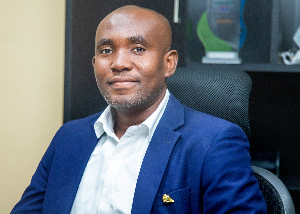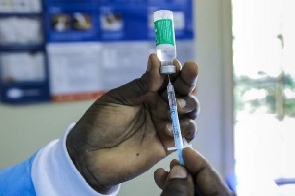Regional News of Monday, 21 December 2020
Source: GNA
Stigma and discrimination are violations of human rights - CHRAJ
Stigma and discrimination are affronts to human rights and violate individual and/or group rights, Dr Isaac Annan, Director, Human Rights, Commission for Human Rights and Administrative Justice (CHRAJ), has said.
Stigma refers to the act of labelling someone or to see someone as inferior because of an attribute whilst discrimination is the act of making unjustified distinctions between human beings based on the groups, classes, or other categories to which they are perceived to belong.
He said stigma and discrimination potentially undermined the right to basic services, including healthcare, education, housing and livelihood, which ultimately leads to social exclusion and disempowerment of affected persons.
Dr Annan said this in his presentation at the launch of the Ghana Somubi Dwumadie (Ghana Participation Programme) second call for proposals.
Under the call for proposals, the programme plans to award grants totalling GH¢11 million.
Ghana Somubi Dwumadie is a four-year disability programme in Ghana, with a specific focus on mental health and funded with UKAid from the UK Government.
Speaking on the topic "Tackling Stigmatisation and Discrimination: The Role of CHRAJ," Dr Annan noted that human rights were entitlements and not mere claims or requests that applied to every human being based on the universality principle.
He said every person had the right to equality and non-discrimination, human dignity, liberty and security, and an effective remedy.
With regards to the effects of stigma, Dr Annan said it created barriers thereby leading to a denial of access to basic services such as health, education, livelihood, work/employment and housing experienced in educational institutions/schools, health facilities, workplaces and communities.
Other effects of stigma include undermining the right to personal dignity, humiliation and ridicule.
He said stigma led to isolation, disempowerment and social withdrawal/exclusion.
He said persons with disability (PWDs) and persons with mental health disabilities by their social and economic circumstances were more susceptible to stigma and discrimination.
"Presently, there is a mechanism (Discrimination Reporting System) available at CHRAJ that deals with all forms of stigma and discrimination related complaints, and provide appropriate remedies," he said.
"Persons affected by stigma and discrimination have recourse to CHRAJ redress mechanism."
Dr Annan noted that there was the need to intensify public awareness of the existence of Discrimination Reporting System within CHRAJ as a mechanism for dealing with stigma and discrimination.
He noted that CHRAJ would deepen collaboration with relevant stakeholders to protect the rights of vulnerable persons.
Mrs Lyla Adwan-Kamara, Team Leader, Ghana Somubi Dwumadie, said the proposals to the fund should focus on projects which build evidence and effectiveness for mental health and disability inclusion interventions.
The proposals must also ensure that people with disability, including people with mental health disability, are in the lead on approaches to improve their wellbeing, social and economic outcomes, and rights.
She said the key objectives of the grants were to improve the wellbeing of and empower people with disability, including mental health disability.
It is also to reduce stigma and discrimination and to generate evidence through research to inform policy and practice on disability and mental health.
Mr Lawrence Akubori, Grants Advisor, Ghana Somubi Dwumadie, said applications would be accepted from December 18, 2020, to January 18, 2021.
He said while the call covered applications from across the country, priority projects in under-served regions, particularly the Northern, Upper East, Upper West, Savana, North East, Bono East, Bono, Volta, Oti and Central regions were welcome.
He said eligible organisations included Disabled People’s Organisations, Self-Help Groups, Women’s Rights Organisations and other Civil Society Organisations.
Research institutions (including universities) and media organisations could apply in partnership with any of the eligible organisations to conduct research or social and behaviour change activities.
Ghana Somubi Dwumadie programme is run by an Options-led consortium, which also consists of BasicNeeds-Ghana, Kings College London, Sightsavers International and Tropical Health.
It focuses on four key areas to promote stronger policies and systems that respect the rights of people with disability, including; people with mental health disability.
Entertainment











